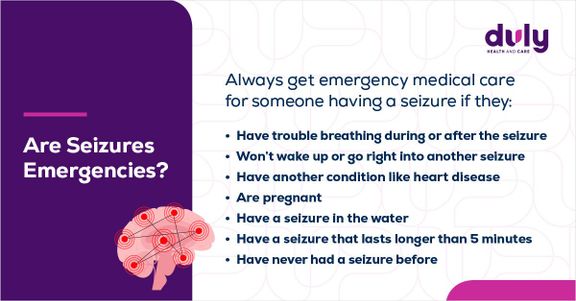It may have taken years for them to tell you. They may have told you the day you met. Or maybe, they were diagnosed after you were already friends. No matter when or how you found out, you’ve learned that your friend has epilepsy.
Now what?
Epilepsy (also known as a “seizure disorder”) is a condition where you have recurring seizures — sudden, short bursts of electrical activity in your brain. It’s the fourth most common neurological disorder worldwide and can affect anyone at any age. Yet despite how common it is, it’s often misunderstood.
If you have a friend with epilepsy, you may be confused about the condition or unsure how to help them. That’s perfectly normal — but fortunately, there are many ways to provide support for someone with epilepsy.
Here are some of the “dos” and “don’ts” to keep in mind if you have a friend with a seizure disorder:
Do: Learn about epilepsy.
While you certainly don’t need to become an expert, it’s a good idea to brush up on your epilepsy basics. Having some seizure knowledge under your belt can help you better understand what your friend is going through and be prepared if they have a seizure in front of you. It will also show your friend how much you care, and reassure them that they will be safe if they have a seizure around you.
Before hitting the books, find out what type of epilepsy and seizures your friend has, since there are many types.
Also, don’t be afraid to ask your friend questions so you can learn more about their personal experience with epilepsy. Find out what triggers their seizures, such as flashing lights, stress, illness, or lack of sleep. Just make sure that your friend is comfortable with talking about it. Let them know that you can stop asking and that they don’t have to answer anything they don’t want to.
Do Not: Play the role of doctor.
As you study up, you might start reading about different types of treatment, or come across chat forums where people discuss how they control seizures.
Avoid saying things like, “You should try this,” or “Why don’t you use that?” As well-intentioned as you may be, the best medical advice your friend can get is from their own healthcare provider. It can also come off as pushy or even insensitive, even though you’re trying to help.
Also read: Goodbye Dr. Google and Self-Diagnosis: 5 Pitfalls of Acting Like Your Own Doctor
Do: Come up with a seizure plan.
Whether your friend has seizures regularly or can’t remember the last time they had one, make a plan for what to do if a seizure does occur.
Learning seizure first aid is one of the most important parts of making a seizure plan.
If your friend has a tonic-clonic seizure (the type that most people think of when they think of seizures, where a person falls and convulses), follow these steps:
- Stay calm and keep others calm
- Time the seizure
- Gently help them lay down and roll them onto their side
- Put something soft under their head and neck
- Loosen tight clothing (e.g., undo top shirt buttons, remove tight neck chains)
- Keep their head away from hard or sharp objects and corners
- Do not try to restrain them or hold them down
- Never put anything in their mouth — it is a myth that a person having a seizure can swallow their tongue.
- Don’t give them food, drinks, or pills until they are fully awake and aware
- When they wake up, stay with them until they are completely alert
Resource: Learn about first aid for other types of seizures.
The seizure plan should also include emergency contact information and a list of their current medications.
Not all seizures require emergency care, but there are certain times when you should call 9−1−1 for a friend having a seizure.

Do Not: Panic if they have a seizure.
Watching someone have a seizure can be scary, especially because a seizure can become life-threatening. However, most aren’t as serious as they appear. And if your friend had a seizure where they lost consciousness or their consciousness is impaired, they might not even remember it after. It’s often much scarier for the person watching the seizure than the person having one.
If your friend is looking for a specialist to treat their epilepsy, recommend that they schedule an appointment with a Duly Health and Care neurologist.
Also read: Duly Health and Care Doctors Named ‘Top Brain Doctors: 2022’ by Chicago Magazine
Do: Offer your support.
Having epilepsy can take a toll on someone’s mental health, even if they have their seizures under control or they seem to be okay on the outside. Let your friend know that you’re there if they ever want to talk about it.
If they have a seizure and can no longer drive for a while (many states require being seizure-free for a certain amount of time), offer to run errands or drive them to appointments.
Even if they don’t take you up on it, it will mean a lot to them to know that they can count on you.
Do Not: Treat them any differently than you would treat anyone else.
There’s a difference between accommodating your friend and alienating them.
It’s important to be mindful of their epilepsy when making plans. If you know that lack of sleep is a seizure trigger, you may not want to invite them to a midnight movie premier. If their medication causes drowsiness, don’t take it personally if they sometimes have to pass on plans in favor of a nap.
But when it comes to how you treat them as a person, be careful not to walk on eggshells, tease them about epilepsy, or make them feel guilty about not being able to do certain things. Give them the same respect that you would give your other friends.
They might not say it, but they will notice — and it can make a world of difference.
Health Topics:








